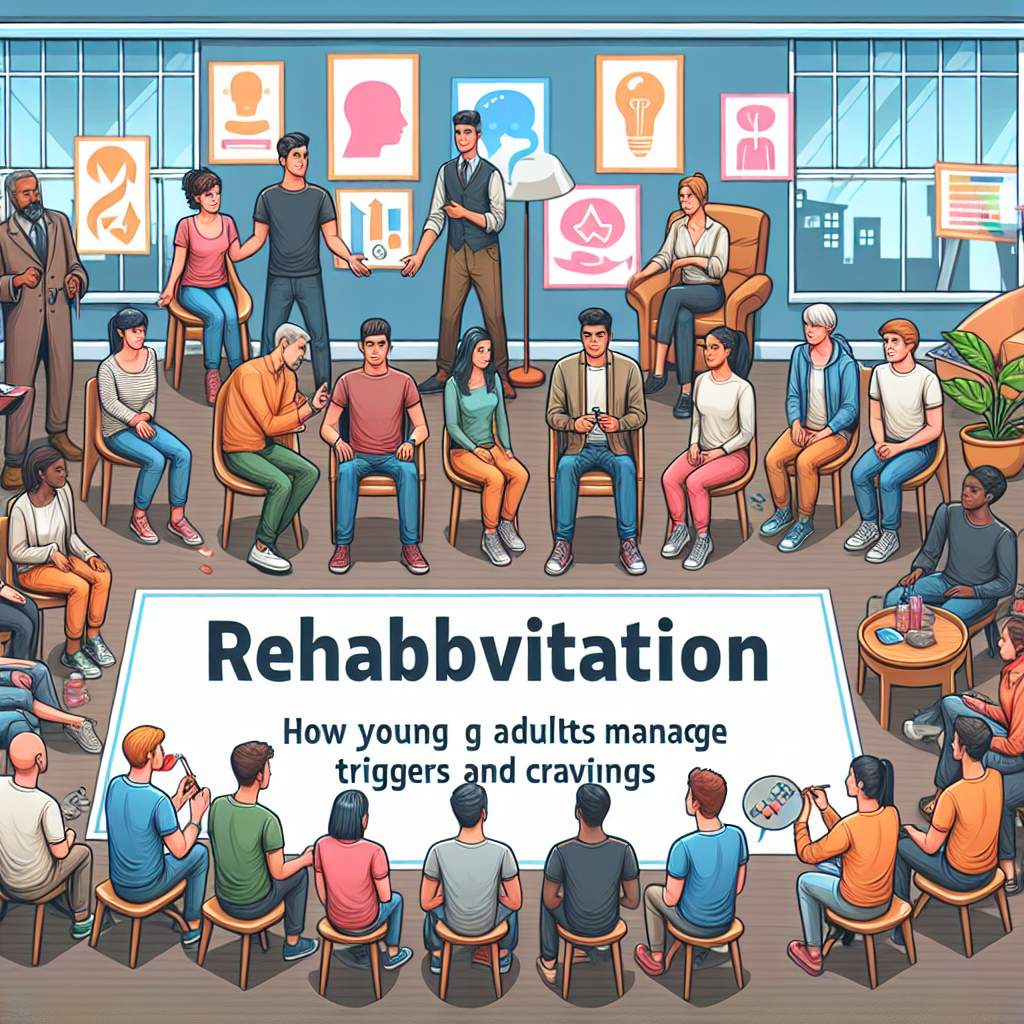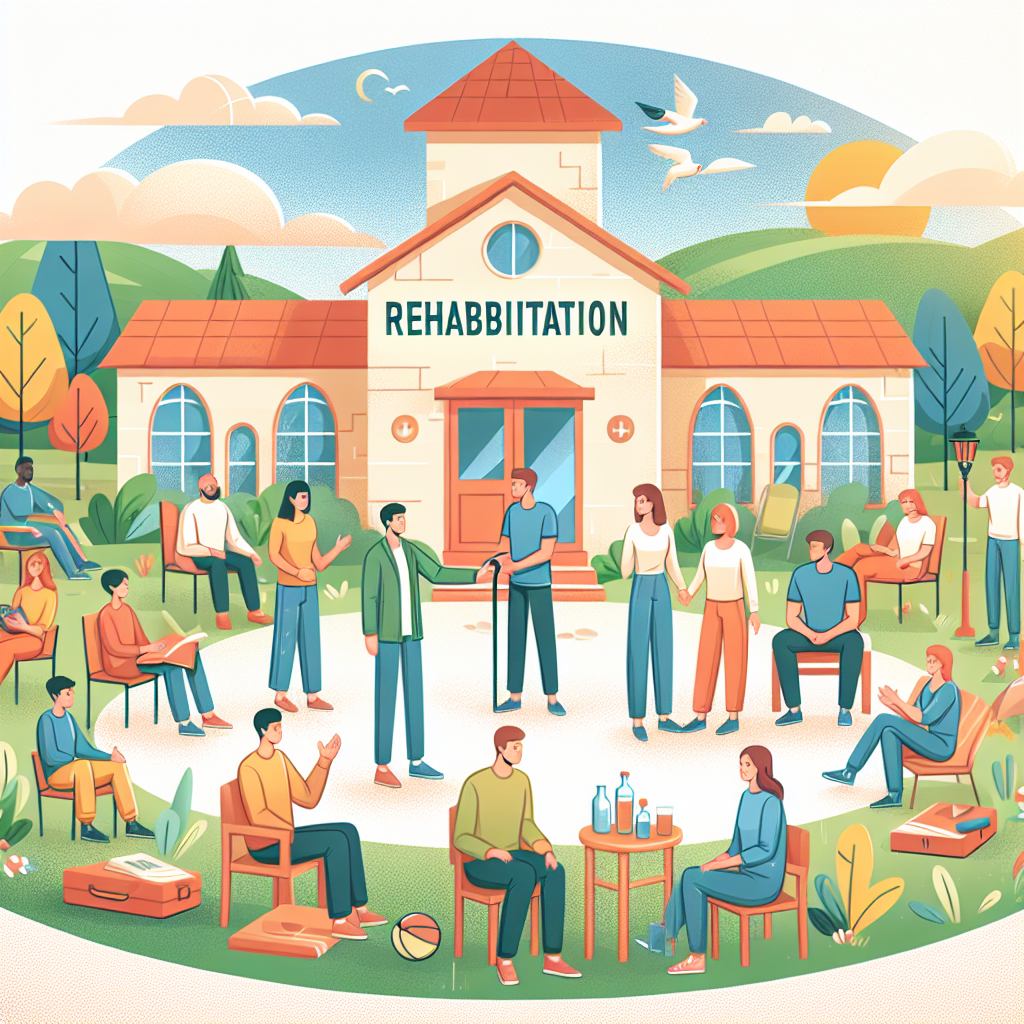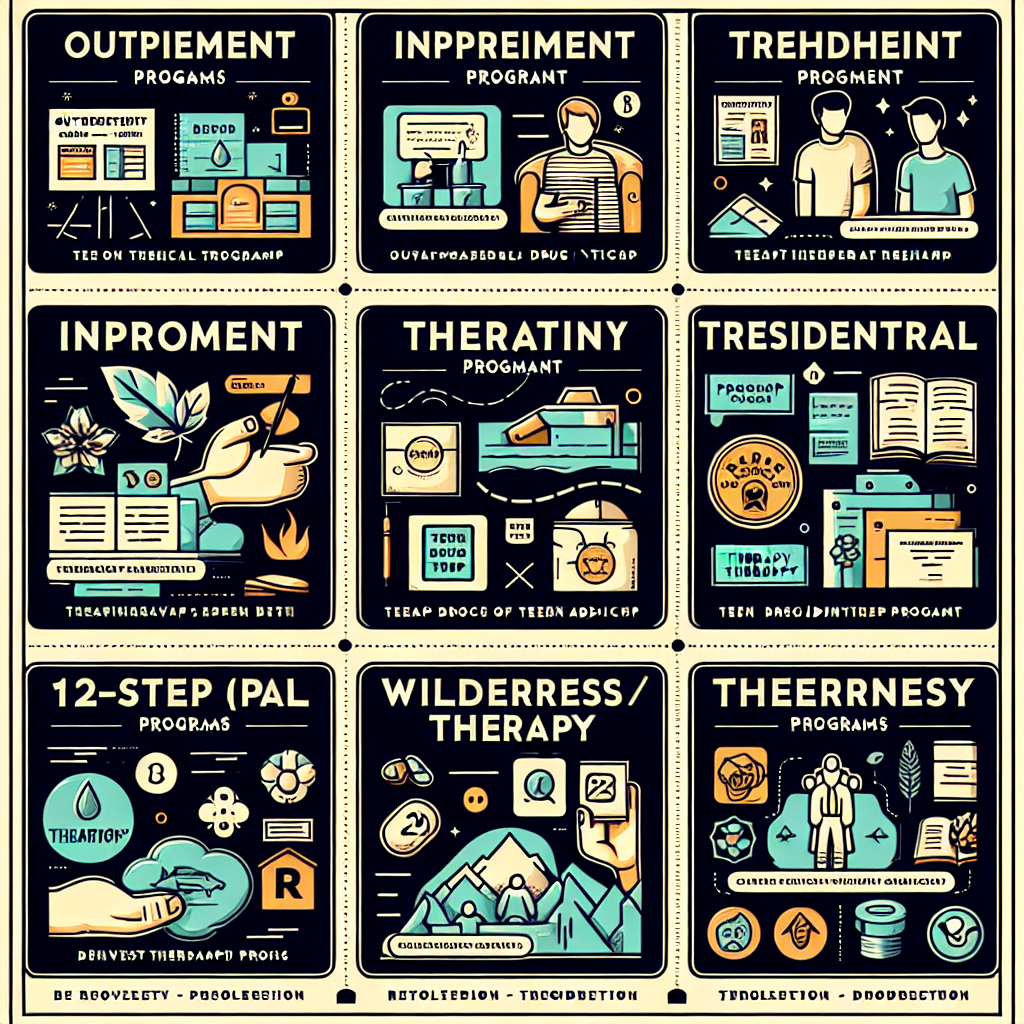-
Table of Contents

“Empowering Young Adults to Overcome Triggers and Cravings for a Brighter Future.”
Introduction
Rehabilitation programs play a crucial role in helping young adults manage triggers and cravings associated with substance abuse and addiction. These programs provide a structured environment where individuals can receive comprehensive care, including medical supervision, psychological support, and behavioral therapy. By addressing the underlying causes of addiction and teaching coping strategies, rehab helps young adults develop the skills necessary to resist cravings and avoid relapse. Through a combination of individual counseling, group therapy, and educational workshops, participants learn to identify their triggers, understand the impact of their addiction, and build a sustainable path to recovery. Additionally, rehab programs often incorporate holistic approaches such as mindfulness, exercise, and nutrition to support overall well-being, making it easier for young adults to maintain a healthy, substance-free lifestyle.
Understanding the Role of Therapy in Managing Triggers and Cravings for Young Adults
Understanding the role of therapy in managing triggers and cravings for young adults is crucial in the journey toward recovery. Rehab programs are designed to provide a structured environment where young adults can learn to navigate the complexities of addiction. These programs often incorporate various therapeutic approaches to help individuals identify and manage their triggers and cravings effectively. By doing so, they empower young adults to regain control over their lives and build a foundation for long-term sobriety.
One of the primary ways rehab helps young adults manage triggers and cravings is through cognitive-behavioral therapy (CBT). This form of therapy focuses on identifying negative thought patterns and behaviors that contribute to substance use. By recognizing these patterns, individuals can develop healthier coping mechanisms. For instance, a young adult might learn to replace the urge to use substances with activities that promote well-being, such as exercise or creative pursuits. This shift in behavior not only reduces the immediate craving but also fosters a sense of accomplishment and self-worth.
In addition to CBT, many rehab programs incorporate mindfulness-based therapies. Mindfulness practices, such as meditation and deep-breathing exercises, teach individuals to stay present in the moment. This heightened awareness can be particularly beneficial when dealing with triggers. Instead of reacting impulsively, young adults learn to observe their thoughts and feelings without judgment. This practice creates a space between the trigger and the response, allowing for more thoughtful decision-making. Over time, mindfulness can become a powerful tool in managing cravings and reducing the risk of relapse.
Group therapy is another essential component of rehab that aids in managing triggers and cravings. Sharing experiences with peers who are facing similar challenges can be incredibly validating and supportive. In a group setting, young adults can discuss their triggers and learn from others’ coping strategies. This collective wisdom fosters a sense of community and belonging, which is often lacking in the lives of those struggling with addiction. Moreover, the accountability that comes with group therapy can motivate individuals to stay committed to their recovery goals.
Family therapy also plays a significant role in the rehab process. Addiction often affects not just the individual but also their loved ones. Family therapy sessions aim to rebuild trust and improve communication within the family unit. By involving family members in the recovery process, young adults receive a broader support system. This support can be invaluable when facing triggers and cravings outside the rehab environment. Knowing that they have a network of understanding and supportive people can make a significant difference in their ability to manage these challenges.
Furthermore, rehab programs often include educational components that inform young adults about the science of addiction. Understanding how substances affect the brain and body can demystify the experience of cravings. This knowledge empowers individuals to see their cravings as a natural part of the recovery process rather than a personal failing. Armed with this information, they can approach their triggers with a more informed and proactive mindset.
In conclusion, rehab provides young adults with a comprehensive toolkit for managing triggers and cravings. Through cognitive-behavioral therapy, mindfulness practices, group and family therapy, and educational components, individuals learn to navigate the complexities of addiction. These therapeutic approaches not only address the immediate challenges of recovery but also lay the groundwork for a healthier, more fulfilling life. By embracing these tools and strategies, young adults can transform their lives and move forward with confidence and hope.
The Importance of Support Systems in Rehab for Young Adults Battling Triggers and Cravings
Rehabilitation programs play a crucial role in helping young adults manage triggers and cravings, which are often the most challenging aspects of recovery. The importance of support systems in these programs cannot be overstated, as they provide the necessary foundation for individuals to navigate the complexities of addiction and recovery. By fostering a sense of community and offering various forms of support, rehab centers create an environment where young adults can thrive and develop the skills needed to maintain long-term sobriety.
One of the primary benefits of a strong support system in rehab is the sense of belonging it fosters. Young adults often feel isolated and misunderstood, which can exacerbate their struggles with addiction. In a rehab setting, they are surrounded by peers who share similar experiences and challenges. This camaraderie helps to break down feelings of isolation and provides a network of individuals who can offer empathy, understanding, and encouragement. As a result, young adults are more likely to open up about their struggles and seek help when needed.
Moreover, support systems in rehab extend beyond peer relationships. Professional counselors, therapists, and medical staff play a vital role in guiding young adults through their recovery journey. These professionals are trained to identify and address the underlying issues that contribute to addiction, such as trauma, mental health disorders, and family dynamics. By working closely with these experts, young adults can develop personalized strategies to manage triggers and cravings, which are essential for maintaining sobriety.
In addition to professional support, family involvement is another critical component of a successful rehab program. Family members often play a significant role in an individual’s recovery, as they can provide emotional support and encouragement. Rehab centers frequently offer family therapy sessions, which help to mend strained relationships and educate family members about addiction and recovery. This collaborative approach ensures that young adults have a strong support network both during and after their time in rehab.
Furthermore, support systems in rehab often include various group activities and therapeutic interventions designed to help young adults build resilience and coping skills. Group therapy sessions, for example, provide a safe space for individuals to share their experiences and learn from others. These sessions can be incredibly empowering, as they allow young adults to see that they are not alone in their struggles and that recovery is possible. Additionally, activities such as art therapy, yoga, and mindfulness exercises can help individuals develop healthy outlets for managing stress and emotions, which are often triggers for cravings.
As young adults progress through their rehab program, they also learn the importance of aftercare and ongoing support. Many rehab centers offer alumni programs, support groups, and continued counseling to help individuals maintain their sobriety once they leave the facility. These resources are invaluable, as they provide a safety net for young adults as they transition back into their daily lives. By staying connected to their support system, individuals are better equipped to handle the inevitable challenges and temptations that arise during recovery.
In conclusion, the importance of support systems in rehab for young adults battling triggers and cravings cannot be overstated. By fostering a sense of community, providing professional guidance, involving family members, and offering various therapeutic interventions, rehab centers create an environment where young adults can develop the skills and resilience needed for long-term sobriety. With the right support, young adults can overcome their addiction and build a brighter, healthier future.
Q&A
1. **Question:** How does rehab help young adults identify their triggers?
**Answer:** Rehab helps young adults identify their triggers through therapy sessions, such as cognitive-behavioral therapy (CBT), where they learn to recognize situations, emotions, or environments that lead to cravings and substance use.
2. **Question:** What strategies are taught in rehab to help young adults manage cravings?
**Answer:** Rehab teaches young adults strategies like mindfulness, stress management techniques, and the development of healthy coping mechanisms to manage cravings and reduce the risk of relapse.
Conclusion
Rehab helps young adults manage triggers and cravings by providing a structured environment where they can learn coping strategies, receive therapy, and build a support network. Through individualized treatment plans, young adults gain insight into their addiction, identify personal triggers, and develop healthier responses. The combination of medical supervision, counseling, and peer support equips them with the tools needed to maintain sobriety and handle cravings effectively, ultimately fostering long-term recovery and improved mental health.



